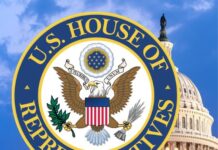
A fourth extension to the negotiations was announced Wednesday morning, as iHeart and lenders continue day-to-day negotiations to restructure iHeart’s $20 billion of debt. This latest extension was the second 24-hour extension. It expires at 11:59 tonight.
This story was updated at 7:35 a.m. Wednesday morning.
That’s because another extension of the forbearance agreement was signed by iHeart and lenders on Monday, however it was only for 24 hours, and it expired last night at 11:59. It was the third extension. Following each extension, news of progress – or lack thereof – has come out early the next morning. That would be today. So, if that same routine continues, we should hear how negotiations on iHeart’s $20 Billion in debt are going at about 7AM this morning.
The first two extensions were followed by three more days of negotiations. This third extension was extended by only one day. That could indicate that the two sides are close to an agreement. It could also indicate they are not close and there’s a bankruptcy filing to follow.
Both sides have been swapping “term sheets” for several months now but have been unable to agree on a final plan for the restructure. What seems to be the goal is for iHeart to come out of the negotiations with about $5.75 billion in new debt as opposed to the $20 billion it has been unable to chip away at for several years. It’s also possible an agreement cannot be reached and the company has to file for bankruptcy.
iHeart skipped a $106 million interest payment on February 1 which set off a 30-day clock before a possible default. Just as that 30 days was about to expire, the two sides agreed to a 72-hour extension to continue to negotiate a deal. Another $138 million in interest payments also went unpaid by iHeart on March 1, setting off another 30-day clock on a possible default, as the two sides continued discussing a possible agreement to restructure iHeart’s debt.









I just came to read all the crack radio fortune tellers predict how the smart play is to sell the obsolete transmitters and put all your content on MySpace.
Maybe EMF will come in and merge with them…a marriage made in heaven!
First of all, don’t hold your breath for a “fire sale”, because, most likely, it won’t happen. Nor do I believe the company will be broken up. They’ll reorganize, like Cumulus, and life will go on. Much of that talk is coming from old radio guys pining for “the good old days” to come back. Wish they could…but I’m too much of a realist.
Secondly…talk radio. You forget iHeart has had liberal talk stations. For the most part, they’ve been failures. And don’t give me the excuse about “weak signals” being used. WCKY/Cincinnati is a 50,000 watt station.
Get a life geek. Cox didn’t invent radio.
NPR is ‘liberal talk’ and has always had over twice the listenership of commercial talk signals. Plus their listeners actually “pay” for the service through donations. So….touche.
Where did you get the idea that NPR has twice the listenership of commercial talk stations? I just checked the lastest ratings. In NY, the NPR affiliate draws around 900,000 listeners per week and the top commercial talk station draws 600,000, 2/3 as many. In Los Angeles, the top COMMERCIAL talk station draws 1.1 million weekly listeners as opposed to 800,000 for the NPR affiliate. It’s important to note that most of NPR’s ratings are driven by “Morning Edition” and “All Things Considered”, which aren’t really talk shows.
NPR is NOT “liberal talk.” They don’t have talk show hosts like Hannity or Rush. They do the news. They do interviews with newsmakers, liberals and conservatives. But the also talk about lots of other things that don’t include national politics. It’s a very different approach to talk, that isn’t based around a single host pontificating his own personal views for four hours. It’s more like what talk radio used to be 40 years ago. That’s why a lot of people find it appealing today.
What’s that old song “Breaking Up is Hard To Do?” Neil Sedaka should be getting royalties on this deal! iHeart is dead – time for bankruptcy and bring on the buzzards. It’s going to be the best thing to happen to Radio since Clear Channel went on their madcap buying spree that started in the late 90’s.
They’ve been avoiding making talk radio competitive. It’s all Limbaugh lies and BS. And it just got worse for them if they want to keep him and guys like Savage and Hannity on to lie and make excuses for Trump and the Russians. The rumor is that soon what they all can now be digitized for very cheap thanks to artificial intelligence and studied and the advertisers that pay for it can be tied to what they’re saying. Advertisers for that kind of talk radio will be hard to find. Talk radio is dead. What happened to Limbaugh in 2012 is nothing.
Well WLUP-FM just sold for $21 million at a fire sale.
A big chunk of the worth of Clear Channel is the 90% of Clear Channel Outdoors, the company that has advertising displays in airports, outdoor billboards and transit shelters in Europe. They also own Katz, the national ad rep firm. They own Premiere, that owns Rush Limbaugh’s subscription streaming operation.
They also own iHeartRadio , available on a large swath of In-car entertainment systems, roku, and mobile devices – with many channels that are not connected to any FCC issued licenses. They also run concert events.
The radio licenses are only a part of the corpse that the lenders are competing for.
Michael Savage is syndicated by Cumulus (Westwood One), not Clear Channel.
Progressive talk radio is dead. Non-commercial NPR stations are kicking butt in many major markets. The death of brick and mortar has put all of commercial radio on life support. Cox and Scripps are looking for the exit, but there are no big buyers left. Entercom will be occupied with absorbing CBS for a year or two. Emmis, Salem and Radio One are treading water at best.
The one owner swimming in cash ready to buy anything is EMF (K-Love, Air1). Most commercial operators can’t begin to understand why that is so.
850 stations for sale at 25 million each
The employees and, more importantly, their input, are of no concern.
The Suggestion Box is bobby trapped.
Agreed. The whole thing stinks. The Board of Directors are lackeys for Bob Pittman, whose claim to fame is that he was part of MTV when it started 40 years ago. How is that at all relevant today?? If anything, that old school experience is a handicap, not something to hang your hat on. And Pittman can blame the former Clear Channel ownership, but he Pittman has been the boss for what, NINE YEARS? Come on. Take some accountability, for zero growth in your radio billings and zero profit in 9 years. Most companies would have fired you a long time ago. But the iHeart Board clearly has not held Pittman to any performance ACCOUNTABILITY. …The FCC should yank all their licences based on IHeart not being a financially sound operator, and auction them off to the highest bidders. Maybe you’d see some financially-sound, local broadcasters take control again. That would be great for radio.
“The Board of Directors are lackeys for Bob Pittman”
It’s really the other way around.
“Take some accountability, for zero growth in your radio billings and zero profit in 9 years.”
Because of the huge debt payments. If you subtract them (which is what this negotiating is aimed at doing), you get a very different picture. You get a company that has created from scratch a formidable and competitive digital platform. You get a company that owns the country’s biggest advertising agency. You get a company that has created profitable concerts and awards shows that promote the brand on network TV. So there’s a lot that Pittman has done, and it’s not just Pittman, but a very experienced group of top managers.
“The FCC should yank all their licences based on IHeart not being a financially sound operator”
There is nothing in the FCC rules that would justify that. Do you want the federal government taking over media outlets? Sounds like the Soviet Union. If there were any “financially sound local broadcasters” they would have stepped in and bought CBS or Scripps. Lots of very good radio stations on the market. No local broadcasters rushing in to buy. Just EMF. Is that what you want?
I don’t get it. larger fewer companies operating more stations in each market creating what amounts to a tri-opoply and in some cases a duopoly combining and eliminating staff to drive operating efficiencies, yet somehow they still can’t pay the bills?
They should be forced to sell some of their stations and pay their debt. A leaner, stronger, iHeart would probably be good for radio.
It’s almost as if the communist theory of “big and centralized” doesn’t work. Who would have thought?
“yet somehow they still can’t pay the bills?”
Do a little research. Previous management took the company private, and saddled them with $20 billion in debt. They’ve been dutifully making their payments for ten years, the lenders have been selling the debt for a profit, everyone has made money, so now it’s time to cut the debt and start again. This is very basic business practice. Bain & Lee are obviously ready for this. All that’s left to figure out is how much equity they get.
If Bain & Lee thought they could make money selling 850 stations, they would have done it a long time ago. That’s not an idea they’re interested in. They want to control 98% of the new company and all its stations. Then sell some debt to Liberty Media.
The Board (on which Bain & Lee have 4 seats) want to retain Pittman. That’s why they’ve offered him & his team bonuses if he sticks with the company through this whole process and meets certain revenue goals. In the end, they will be a leaner iHeart with a lot less debt, and room for investment.
If you look at the proposed restructuring agreements, Bain and Lee will give up as much as 96% of their equity. The banks will own the company and that’s why they are paying Pittman and crew retention bonuses. They are in the business of running radio stations and need Pittman until they decide what they are going to sell off.
In the above comment, I meant to say that the banks are NOT in the business fvrunning radio stations.
Of running radio stations. Damn autocorrect!
John, The Employees Cares
Who cares???